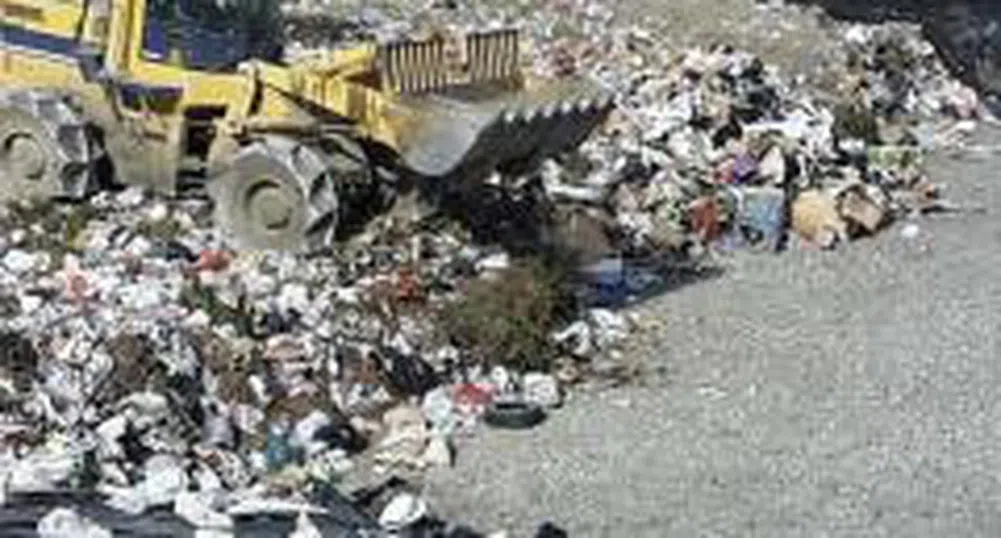Greece Struggles With Garbage Problem

Greece is struggling to manage a colossal garbage problem as recycling fails to take off and landfills fill up and expand, posing serious health and safety risks, the International herald Tribune reports.
The problem is acute in the countryside, which, like the Campania region of southern Italy, is dotted with hundreds of makeshift landfills. The product of local residents and companies dumping their trash with impunity for years, these pollution hot spots are a major fire hazard. Of the blazes that killed more than 80 people in Greece last summer, several are believed to have started on illegal landfills by local people burning their trash or by methane explosions. In recent weeks, fires have broken out in dumps in the southern Peloponnese, the peninsula where the blazes last year wreaked their worst devastation. Now, as temperatures rise, a frenzied cleanup effort is under way.
The authorities have another incentive for this sudden scramble: they face millions of euros in fines from the European Commission if they fail to close down all illegal landfills by the end of the year.
Eradicating between 800 and 3,000 makeshift dumps - there is no official number - is impossible, according to Athanassios Nakos, the deputy minister of the interior and the head of a committee appointed to clean up the trash-strewn provinces. But the current sweep should leave only 500 sites by December, he said.
Ecologists say that the number of makeshift landfills is indeed dwindling but that many of those that remain are larger, fueling suspicion that smaller dumps are being unified into a smaller number of bigger ones. "If this is happening, then local authorities really are lamentable," said Philippos Kyrkitsos, president of the Ecological Recycling Society or Ecorec, a nongovernment organization.
Nakos, answering a reporter's questions by e-mail last month, said it was a "top government priority" to replace illegal dumps with official sanitary landfills.
But it is not just illegal landfills that are a liability. A fire in May at the capital's official landfill has raised questions about security at the 100-hectare, or 250-acre, site.
The Athens landfill served the capital's population of five million - and the 6,500 tons of trash it produced daily - for two decades until early last year, when it reached saturation and trash began to swamp the city streets, as is happening now in Naples.
The authorities say a new landfill will open this month. Meanwhile, garbage is accumulating around the saturated landfill.
According to the EU environment commissioner, Stavros Dimas, who is Greek, the root of the problem is a short-sighted policy of dumping garbage rather than recycling it. "Extending existing landfills or setting up new ones is proof of inefficient waste management," Dimas said.
But the government says Athens needs at least two more landfills to accommodate its trash. It has chosen sites on the eastern outskirts of the city, but court challenges by residents have blocked the project.
But new landfills will not solve the problem without more recycling. Claims by the environment minister, Giorgos Souflias, that "recycling of household trash has increased four-fold" are dismissed by ecologists as wishful thinking.
According to the European Environment Agency, an EU body, Greece ranks last for recycling performance among the 15 states that were members of the bloc before its expansion in 2004. Eurostat figures show that Greece recycled just 13 percent of its waste in 2006, compared with an EU average of 41 percent.
Nobody takes responsibility for this laggard rate. Souflias says recycling is the job of the local authorities. Last week, he offered them an incentive: an €8 million, or $12.5 million, project to triple recycling rates to 200,000 tons a year by 2011.
But many mayors say they lack the funds for getting recycling started in the first place. They blame the Hellenic Recovery Recycling Cooperation, or Herrco, a state-backed body that collects recycling contributions from manufacturers. "Funding recycling is Herrco's responsibility - we do not have the staff or finances," said Giorgos Dimopoulos, the deputy mayor of Athens. Herrco counters that it handles bins, trash vans and sorting centers, but that the local authorities must pay staff.
Recycling efforts are slowly moving forward. About 41 percent of packaging was recycled in Greece last year, up from 33 percent in 2004. But that was still far short of an EU target of 60 percent for 2011. Meanwhile, trash volumes are rising. "The impact of recycling is drowned out in garbage volumes which are growing by 3 percent every year," Kyrkitsos said.
An initiative by Greece's top stores could curb the dumping of plastic, currently about 20 percent of the landfill mix. This week, supermarkets in Athens stopped giving plastic bags to shoppers, instead selling biodegradable bags for 7 cents each - a change that should save them €300 million a year and eliminate 60,000 tons a year of plastic bags, according to industry figures. The stores, frequented by 80 percent of Greek shoppers, include Vassilopoulos, Carrefour Marinopoulos, Galaxias and Atlantic.
Still, the Athens landfill remains a towering heap of household trash, construction rubble and discarded furniture, its sheer size making it a danger zone. Last year, a worker there lost a leg after being buried in a truckload of trash. A few weeks ago, a pregnant, 17-year-old scavenger was crushed to death.
Mnimatidis, the site manager, said requests for permanent policing of the site had gone unanswered.
But the very idea of policing a landfill, when countries like Germany are phasing them out, is "mind-blowing," said Charalambides, of Greenpeace. "This is proof that the authorities have lost control."
)

&format=webp)
&format=webp)
&format=webp)
&format=webp)


&format=webp)